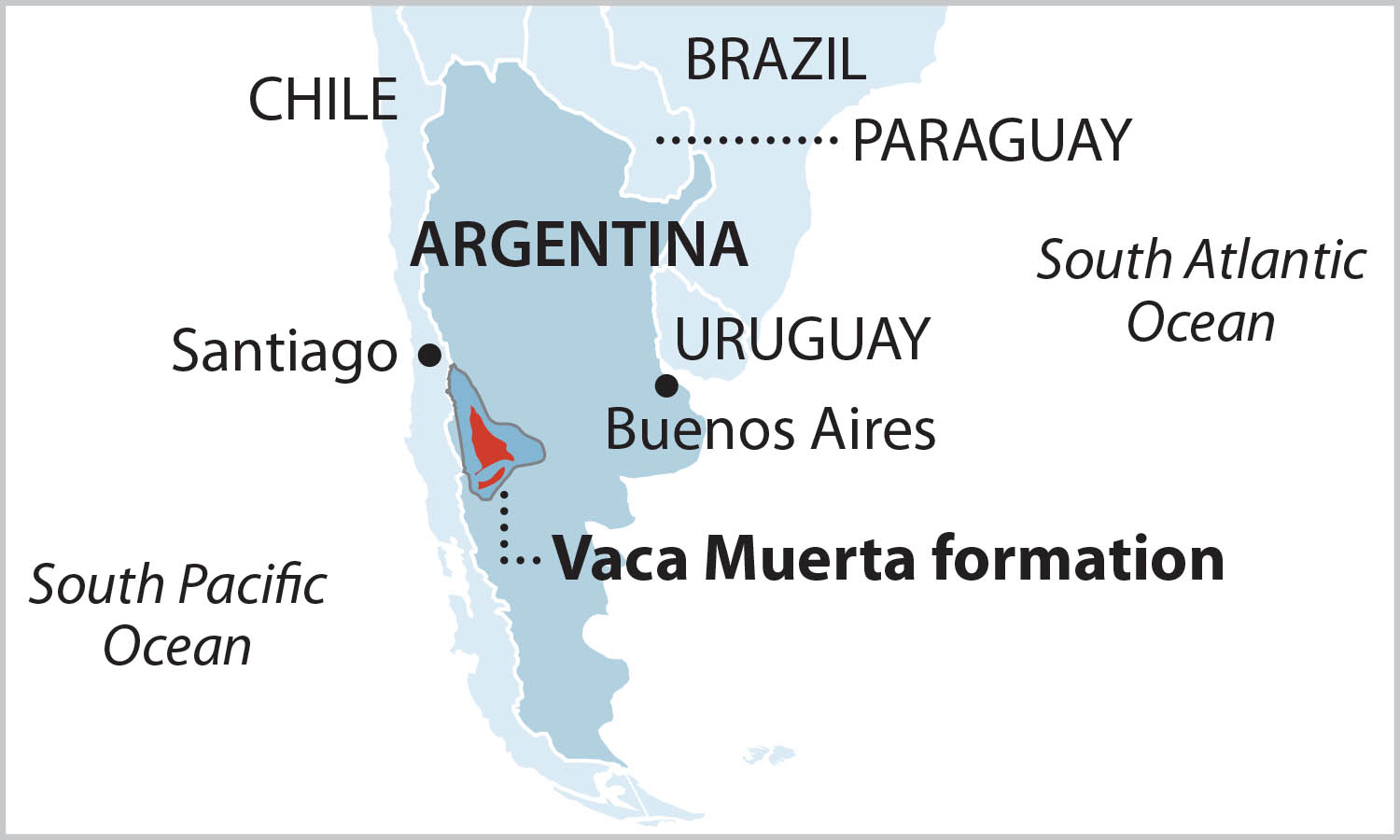IEEFA update: Argentina’s financial crisis offers chance to rethink national energy plan

September 10, 2019 (IEEFA) ‒ Argentina’s financial crisis presents an opportunity to rethink its national energy plan, which is overly dependent on unconventional (“fracking”) oil and gas reserves in Vaca Muerta, Patagonia, according to a briefing note released today by the Institute for Energy Economics and Financial Analysis (IEEFA).
The briefing note, A Silver Lining in Argentina’s Financial Crisis ‒ An Opportunity to Rethink its Energy Plan, observes that Argentina could more prudently use its oil and gas assets with a shift towards domestic rather than foreign markets.
If current trends continue, prospects for revenues from gas exports become even more remote.
“The current energy plan expects Vaca Muerta’s abundant oil and gas reserves to be turned into low energy prices, jobs for Argentina, and dollars or pesos. The benefits are neither automatic nor free.” said Tom Sanzillo, IEEFA director of finance and co-author of the briefing note. “Global oil and gas prices are low, global markets weak, foreign partners stepping back, production costs high, Argentina’ s economy and politics unstable. The Vaca Muerta asset is at risk of becoming an Argentine liability.”
Instead, policymakers would do well to focus more on developing its oil and gas resources as well as abundant wind and solar energy, to benefit consumers and businesses in Argentina.
“The Vaca Muerta energy resources alone cannot revive the Argentine economy, but they are important assets in developing a balanced energy plan that includes abundant solar and wind resources,” said IEEFA financial analyst and briefing note co-author Kathy Hipple.
Argentina’s 2018 energy plan called for a doubling of natural gas and oil production within five years. The goal was to produce oil and gas at levels that would both meet Argentina’s domestic needs and allow for an expansion of export sales. The profits from exports could then be used to enhance the Argentine economy and create jobs and fiscal stability.
The plan falls short, however, in several important ways, among which:
- Fracking is not a financially viable business. The business case for fracking is unproven after a decade of experience in the United States, the only place where fracking has been executed at scale and exploration and production (E&P) companies have faced a rash of bankruptcies after a decade of negative cash flows.
- Argentine oil and gas production has been substantially lower than expected. Natural gas and oil production has been significantly below plan through mid-2019, averaging roughly 5% per year growth, when the plan calls for 14-15% annual growth.
- Government subsidies have supported foreign companies that have not delivered benefits to Argentina. The recent attempt to subsidize natural gas production with government subsidies has proven unaffordable and ineffective. The subsidies also revealed that the largest investor in Vaca Muerta has been the government of Argentina itself ‒ not its foreign partners.
- Exporting natural gas and oil will require substantial government-funded infrastructure projects. Developing Vaca Muerta’s oil and gas reserves and supporting an export market will require roughly $50 billion. At this time, there is no money to support such expansion.
- Renewable energy is deflationary, which will help offset Argentina’s rampant inflation. Even before the latest financial crisis, Argentina’s inflation rate in July was over 50%. An energy plan that promotes renewable energy and prudent use of oil and gas assets will reduce inflationary pressures in the energy sector. Once built, renewable energy has no fuel cost.
“Argentina’s plan expects its oil and gas production to make it a global player in a market that is overcrowded with large, established, powerful producers during a perilous time for energy finance,” said Sanzillo adding, ”An overly ambitious plan shows a misunderstanding of global oil and gas markets. And fledging performance is evidence of disarray.”
“A silver lining of the financial crisis is that Argentina can revise its energy plan,” said Hipple. “It now has an opportunity to change course and aim toward more balanced energy policies that would be a down payment on the country’s economic recovery.”
Tom Sanzillo ([email protected]) is IEEFA’s director of finance.
Kathy Hipple ([email protected]) is an IEEFA financial analyst.
Full briefing note: A Silver Lining in Argentina’s Financial Crisis ‒ An Opportunity to Rethink Its Energy Plan
Media Contact
Vivienne Heston ([email protected]) +1 (914) 439-8921
About IEEFA
The Institute for Energy Economics and Financial Analysis (IEEFA) conducts global research and analyses on financial and economic issues related to energy and the environment. The Institute’s mission is to accelerate the transition to a diverse, sustainable and profitable energy economy.













